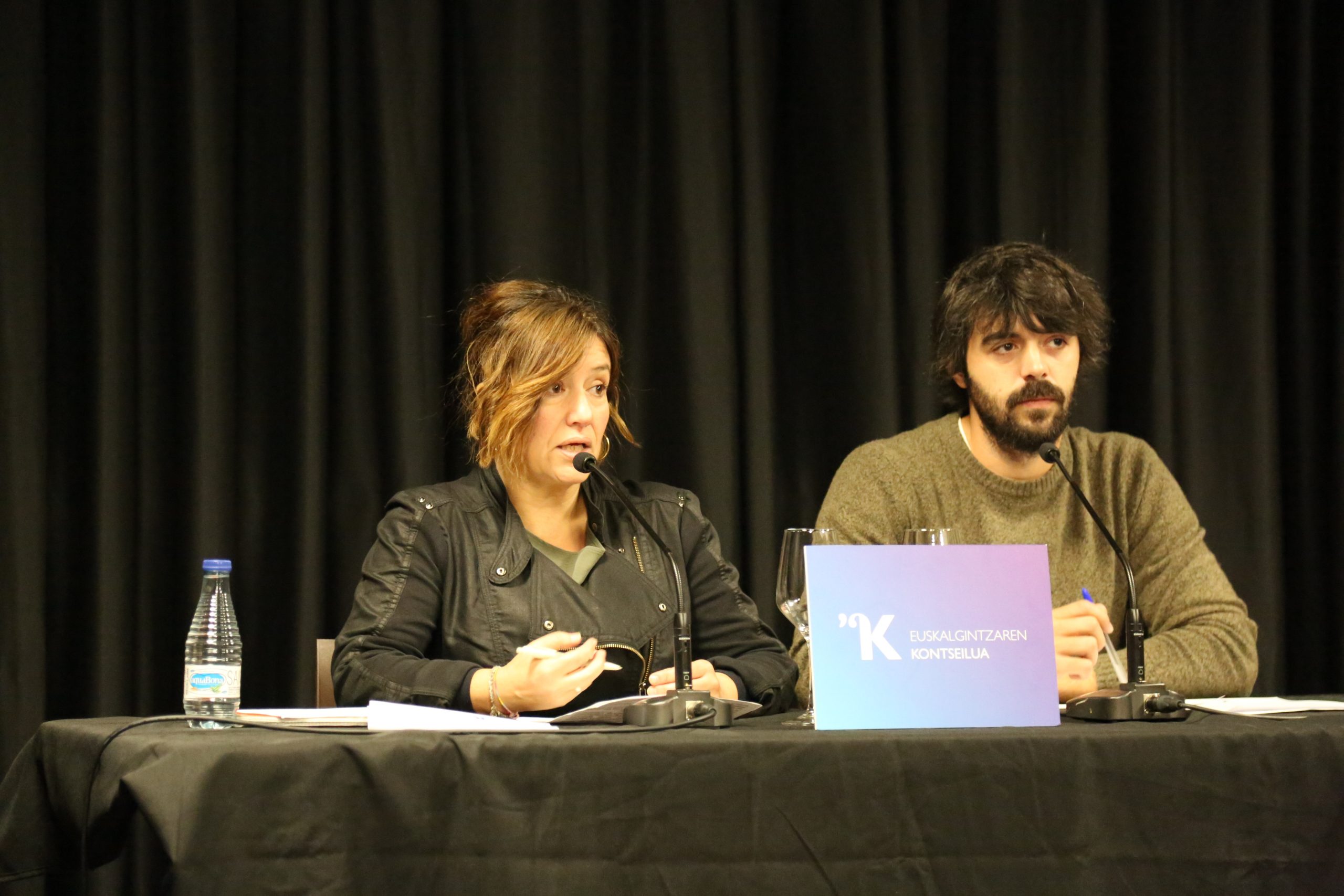
- The Euskalgintza Council welcomed the demonstration on Saturday at the press conference on Tuesday. Following the success of the mobilization, it has committed itself to continue to push for a new socio-political pact in favour of the Basque country. It has also presented the Protocol for the Protection of Linguistic Rights from Aggression.

Council Secretary General Idurre Eskisabel began to thank the hearing. Thanks to the thousands and thousands of citizens who have approached Bilbao, and those who have already worked before: “Hundreds of volunteers who have been talking to people, making photos and videos, pasting posters, organizing buses, collaborating in the demonstration…”
It is pleased that the number of citizens gathered was “above the Council’s expectations” and that “above all, our concern and anguish is attached to society”. It also highlights the socio-political diversity that the demonstration brought together.
Saturday’s success gives “concern” to the Council and the Council has shown its “commitment” to responding to that responsibility. Commitment towards a new socio-political pact for Euskera: “Because to advance the normalization of Euskera it is essential to build a new sociopolitical pact to address the challenges of the future. As would be necessary if there is no aggression.”
Four questions
The Council has asked the judiciary, public institutions, political parties and social and citizens directly.
He told the judiciary that he has to make a “reflection and elaboration of linguistic rights”, a “work of raising awareness and contrast”.
Calls on public institutions to “contribute” in two areas: “On the one hand, when anti-normalisation judgments arrive, moving disputes to the end. On the other hand, ignoring aggression, implementing the standards and laws necessary for the normalization of the Basque country, without complacency, acting decisively”. It calls on political parties, in the same direction, to “guarantee these brave public policies”.
The Council addressed its last message to social partners and citizens: “Nothing is over with the demonstration on 4 November. But we are at the beginning of a long road. Therefore, implement practices and initiatives to combat aggression and, in general, to deepen the normalization of Euskera. Let the normalization of the Basque country be a transversal line in the activities of each”.
Protocol for the protection of language rights
In the past few months, the Council has worked with “actors in the Basque sector and in various sectors” with the aim of “making available to everyone a tool for local and community response to aggression”. In the same hearing the tool was presented by Manex Mantxola Council coordinator: Document “Protocol for the Protection of Linguistic Rights in the Face of Aggression”, “to organize and integrate it in the face of aggression against linguistic rights”. He explains that the protocol is an open document that will “enrich and adapt” along the way through contributions.
The protocol will be activated in two situations, according to Mantxola: on the one hand, when a call for contracts or employment is used to “monitor the case”; on the other hand, when there is a judgment against the rights of the Basques to “prepare the answer”.
Dealing with judgments
The protocol contains two types of response to judgments. When the impact is municipal or local, the dynamization of the response will be in the hands of the agents and local Basque cultural activity. Consensus shall be reached between all actors opposed to the attack: “A joint or individual statement, press conference, concentration or other initiatives. Taking into account the different levels of commitment of the agents, no one will be compelled to go further than is willing.” Where the aggression affects Members and Senior Administrations, the Council will seek to reach a consensus with the trade unions: “Demonstration of denunciation, press conference, concentration, mobilization…”.
Whatever the level of incidence, “communication with the Basque Country, political parties and trade unions, and where necessary, offering different supports and resources, will be the responsibility of the Council”.